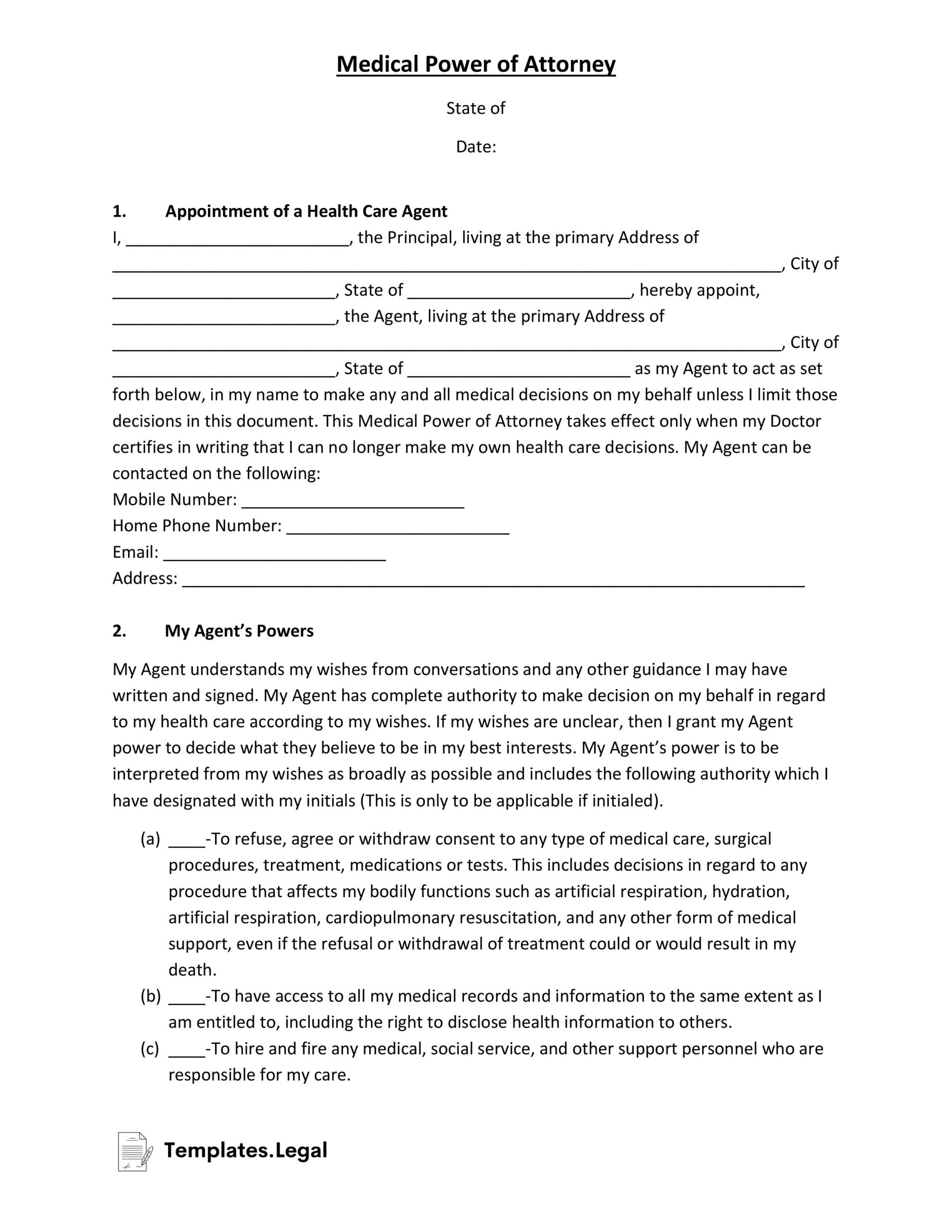
A medical power of attorney may be one of the most important documents in your adult life. Even if you’re fit as a fiddle, it may be worth exploring your options to save you and your loved ones a lot of heartaches if there’s ever a crisis.
Contents hide
A power of attorney refers to legal documents that give somebody else the ability to make certain decisions on your behalf. A medical power of attorney allows somebody else to make determinations about your health and medical situations. There are several different types of powers of attorney to be mindful of:
Depending on where you live, “medical power of attorney” could be an advance directive, health power of attorney, or something similar. In all cases, the medical power of attorney provides your agent with access to your health records and authorizes them to make medical decisions when your physician says you cannot.
You have to be “of sound mind” when you complete and sign a medical power of attorney document. Since you never know when you could be in an accident that renders you incapacitated, it’s a good idea to secure a medical power of attorney sooner rather than later.
Thankfully, getting a medical power of attorney isn’t a complicated process. Still, handling it long before an incident arises could save you a lot of trouble down the line.
● Which physicians, hospitals, and care centers to use
● What tests, treatments, and interventions to allow
● Weighing quality of life versus doing everything medically possible for you
● If and when to disconnect life support
Do you still have questions? It’s completely understandable. Hopefully, these questions and answers will help clear up any doubt and confusion.
Why Do I Need a Medical Power of Attorney?It’s not easy to think about being so incapacitated that you can’t make decisions about your health. However, it’s a possibility for people of all ages, and having a medical power of attorney in place can make a problematic situation somewhat more manageable.
If you don’t have a medical power of attorney, there’s no guarantee that physicians will fulfill your wishes. Choosing a trusted individual to make critical decisions on your behalf is in your best interest.
How Do I Revoke a Medical Power of Attorney?It is possible to terminate a medical power of attorney for any reason, as long as you are “of sound mind.” Usually, you can write a statement revoking the medical power of attorney and provide a copy to everybody involved.
Of note, some states require you to notify the agent of where you revoke their power, while others use a formal revocation form. It’s in your best interest to check on the requirements for your state.
How Do I Sign as a Medical Power of Attorney?For individuals acting as the medical power of attorney for another person, it can be confusing to know how to handle the forms. Before you can sign anything, you must have the legal document giving you power of attorney. Make sure you can show the form to support your status.
The other important thing to know about signing for another person is that you must clarify that you are signing on their behalf. For example, you could sign “Joe Brown, by Billie Crawford under POA.”
Since different institutions and industries have set standards for these situations, you may want to consult the person providing the form. At the medical facility, ask a nurse or medical clerk how they usually handle the situation. It’s a good bet that they can tell you what you need to know.